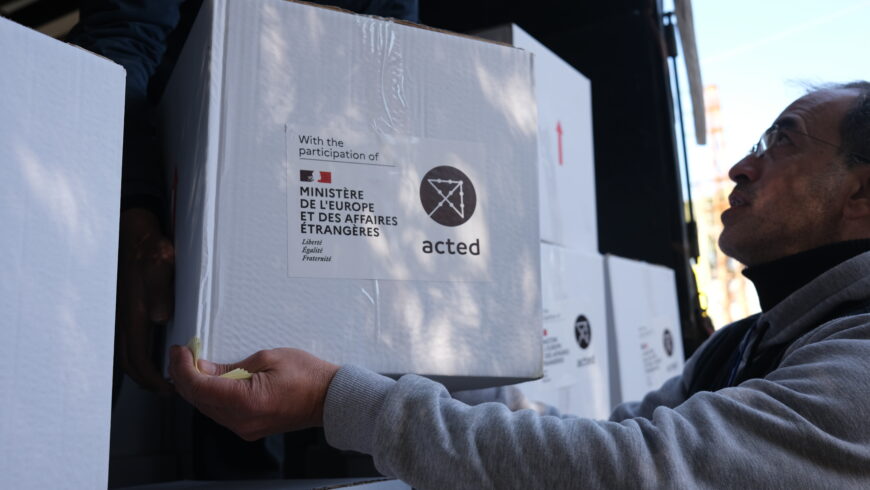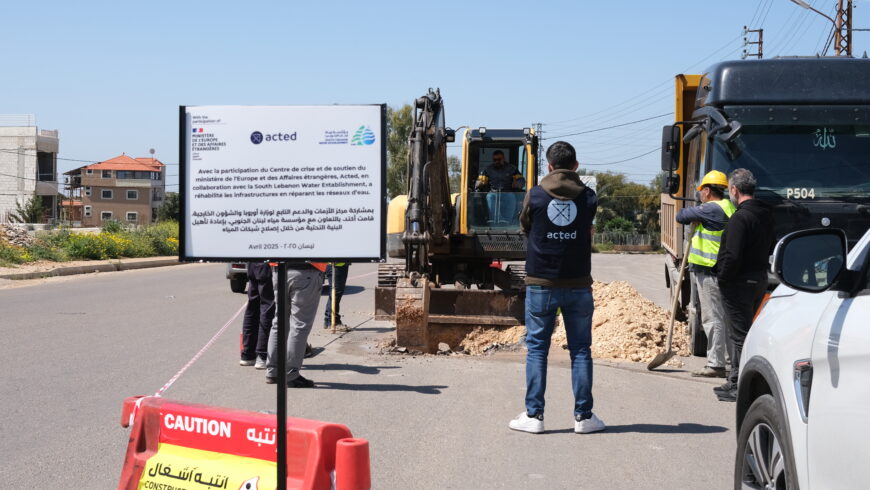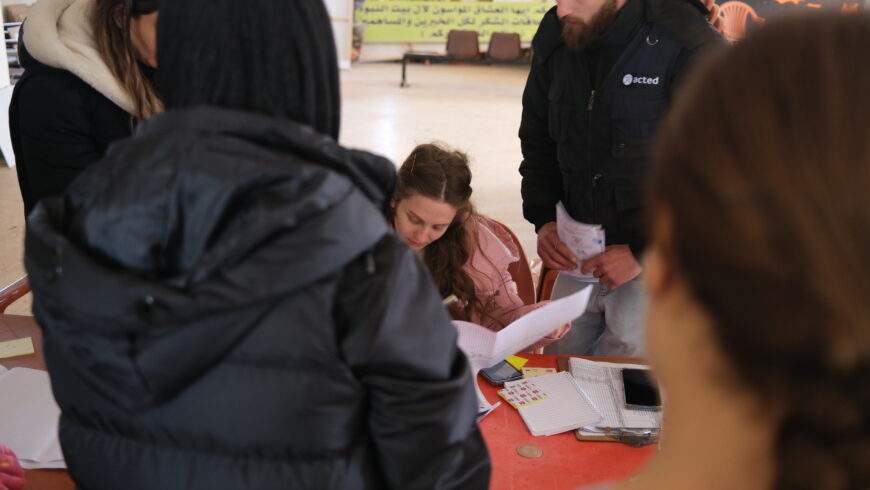Following the escalation of the war between Hezbollah and Israel in September 2024, around 1.2 million people were displaced—over 80 percent seeking refuge in Beirut and Mount Lebanon. This deepened an already critical situation after nearly six years of economic decline. Government-run collective sites mainly hosted displaced Lebanese nationals but were often unsuitable for marginalized groups like older persons or people with disabilities, and unwelcoming for non-traditional families and LGBTIQ+ individuals. In response, national organizations established informal collective sites to meet the needs of these groups, as well as migrants and Syrian refugees. After a fragile ceasefire was brokered on 4 November, over 900,000 people returned to their areas of origin, marking a shift in the emergency response.
At the outset of the crisis in September 2024, the humanitarian system was slow to respond to the needs of displaced populations. National organizations initially led the response, drawing on Lebanon’s vibrant civil society to provide emergency food and water to those most in need. When other actors joined the response, it focused primarily on Government Collective Sites, while the needs of those residing in Non-Governmental Sites were largely overlooked. Acted quickly identified this gap and designed its response strategy to reach all those in need.
Conditions across collective sites varied considerably. Most governmental sites were repurposed schools that had to be rapidly adapted to accommodate displaced populations. In contrast, conditions in Non-Governmental Collective Sites, particularly those hosting migrant workers, were often significantly worse, with widespread overcrowding and limited access to basic services such as water and electricity. For displaced LGBTIQ+ individuals, securing safe shelter was especially challenging due to their heightened vulnerabilities and the discrimination they face on a daily basis which were exacerbated by the situation. In response, specialized and trusted organizations established dedicated safe spaces to meet their specific protection needs.
Following the ceasefire on 4 November 2024, returnees faced acute challenges, including destroyed homes and severely degraded access to essential services, underscoring the continued need for a comprehensive, inclusive humanitarian response.

Meeting Emergency Needs of the Displaced and Returnees
With the support of the Centre de Crise et de Soutien (CDCS), Acted adopted a multi-sectoral approach to address the needs of both displaced and returnee populations. To reach the most vulnerable individuals outside governmental sites to ensure an inclusive response, Acted partnered with specialized national organizations—Migration, Services and Development (MSD), and Helem—to ensure that the specific needs of displaced migrant workers and LGBTIQ+ individuals were met. Within government sites and for returnees in El Nabatieh Governorate in southern Lebanon and the Southern Suburbs of Beirut, Acted coordinated with other humanitarian actors to support a unified and effective response.
The intervention directly supported 17,045 displaced and returnee individuals through the distribution of essential relief items to meet the urgent needs of families and individuals affected by the conflict, including those returning to their homes in the Southern Suburbs of Beirut and El Nabatieh (southern Lebanon)—areas heavily impacted by the war.
Acted restored access to clean water for 6,224 conflict-affected individuals and reached a total of 7,000 individuals (1,555 households) through the distribution of 2,700 blankets, 2,709 mini consumable hygiene kits, 60 family hygiene kits, 300 baby kits, and 30 LGBTQ+ hygiene kits.
To address ongoing water access challenges, Acted provided potable water over a three-month period to 14,371 families (64,670 individuals) residing in collective sites and among returnees in the southern suburbs of Beirut.
In support of marginalized groups, Acted assisted 2,329 displaced migrant individuals with emergency relief items and covered the operational costs of one Migrant Non-Governmental Site in Mount Lebanon, as well as two LGBTIQ+ Non-Governmental Site in Beirut and Mount Lebanon, which collectively housed 26 individuals.
Reinforcing Water and Sanitation Services

To address critical gaps in water access in areas affected by the war, a wide-reaching water and sanitation intervention was implemented after the ceasefire. In collaboration with the South Lebanon Water Establishment (SLWE), Acted supported the repair of damaged water infrastructure supplying four villages in El Nabatieh Governorate; restoring water access to approximately 8,000 households. Additionally, fuel was provided to four key pumping stations in southern Lebanon and one in the Southern Suburbs of Beirut, ensuring continued access to safe water for an estimated 6,224 subscribers.
Localising the Response
The project placed national organizations at the center of the response, recognizing that they are best positioned to serve the communities they represent. With CDCS support, Helem and Migration Services and Development (MSD) received funding to cover the operational costs of three Collective Sites, which would not have been able to function without this assistance.
Additionally, MSD was supported to prepare 5,040 hot meals over a three-month period for 64 migrant families, and in distributing 40 dignity kits to 29 migrant families in their Site—directly contributing to improved living conditions for migrant communities.
Beyond field-level support, Acted offered peer-to-peer technical assistance to both organizations, enhancing the inclusivity and efficiency of service delivery as needed, and reinforcing the leadership role of local actors in future emergency responses.

Acted’s response, supported by CDCS demonstrated the critical role of national organizations in delivering inclusive, community-based humanitarian assistance. By prioritizing marginalized groups and addressing urgent needs both in displacement and upon return, the project not only filled critical gaps in the emergency response but also laid the groundwork for more resilient, locally-led recovery efforts. As Lebanon continues to navigate the aftermath of the conflict, such collaborative, targeted approaches remain essential to ensuring no one is left behind.